March's 3rd Week Weekly Sales Ranking: Li Auto's Autonomous Approach Amid Ban – Sales Below 10,000, Price Wars Intensify
![]() 03/26 2025
03/26 2025
![]() 493
493
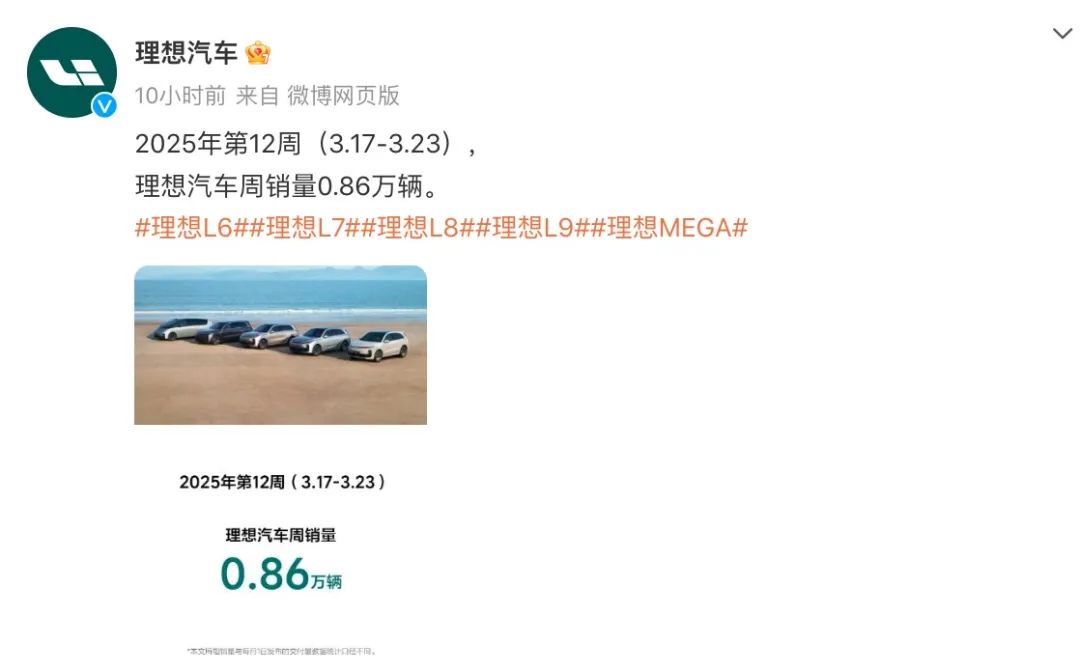
Li Auto, the pioneer of weekly sales rankings, found itself in a quandary after being asked by the China Association of Automobile Manufacturers (CAAM) to halt the practice. On March 25, Li Auto defied the directive, releasing its weekly sales data alone. For the week of March 17th to March 23rd, Li Auto sold 8,600 units, omitting the rankings and sales figures of other brands. The message was clear: if a comprehensive ranking is out of bounds, then can at least individual data be shared?
On March 18th, CAAM issued an "Initiative on Regulating the Release of Corporate Data," urging enterprises to standardize data publication and cease external weekly sales rankings to prevent fragmented information from leading to biased interpretations and mitigating misleading public opinion's impact on the market.
Li Auto commenced publishing weekly sales data in April 2023 but briefly suspended updates in May due to peer complaints. Last July, executives from automakers such as NIO and Geely publicly opposed the weekly rankings, urging Li Auto to discontinue them. Li Auto ignored these calls, continuing to publish weekly sales data every Tuesday. However, in response to CAAM's initiative, Li Auto ceased publishing weekly sales rankings from the 11th week (March 10th - March 16th).
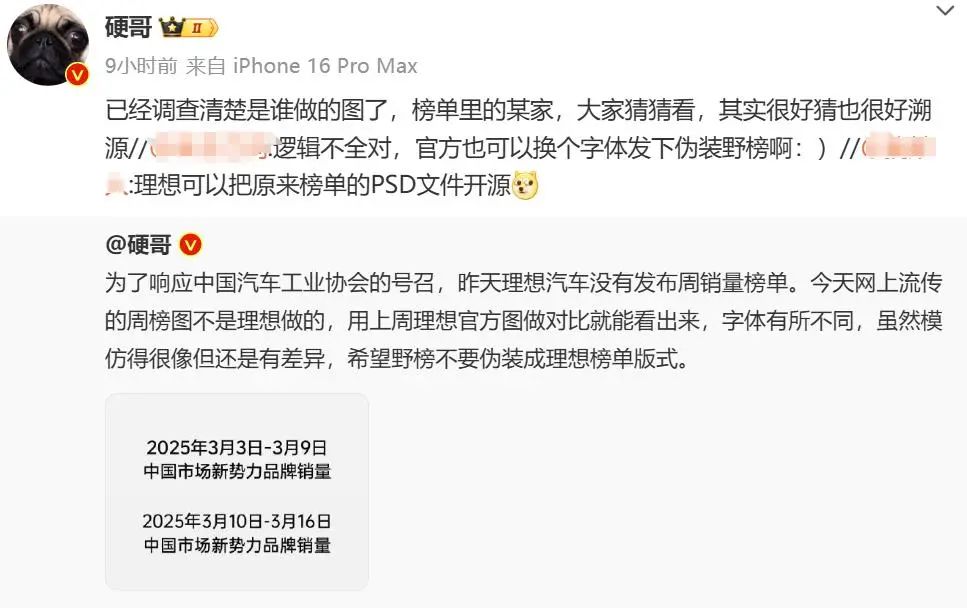
Despite Li Auto's cessation, the weekly sales ranking didn't end. In the first week after Li Auto stopped publishing, a weekly sales ranking (March 10th - March 16th) styled after Li Auto's format leaked out. Li Auto executives refuted the rumor, stating they had traced the image's source to one of the automakers listed in the ranking.
Shortly after Li Auto released its weekly sales data on March 25th, various weekly sales rankings emerged, some mimicking Li Auto's format. Several automotive self-media platforms also published the latest weekly sales data via Weibo.
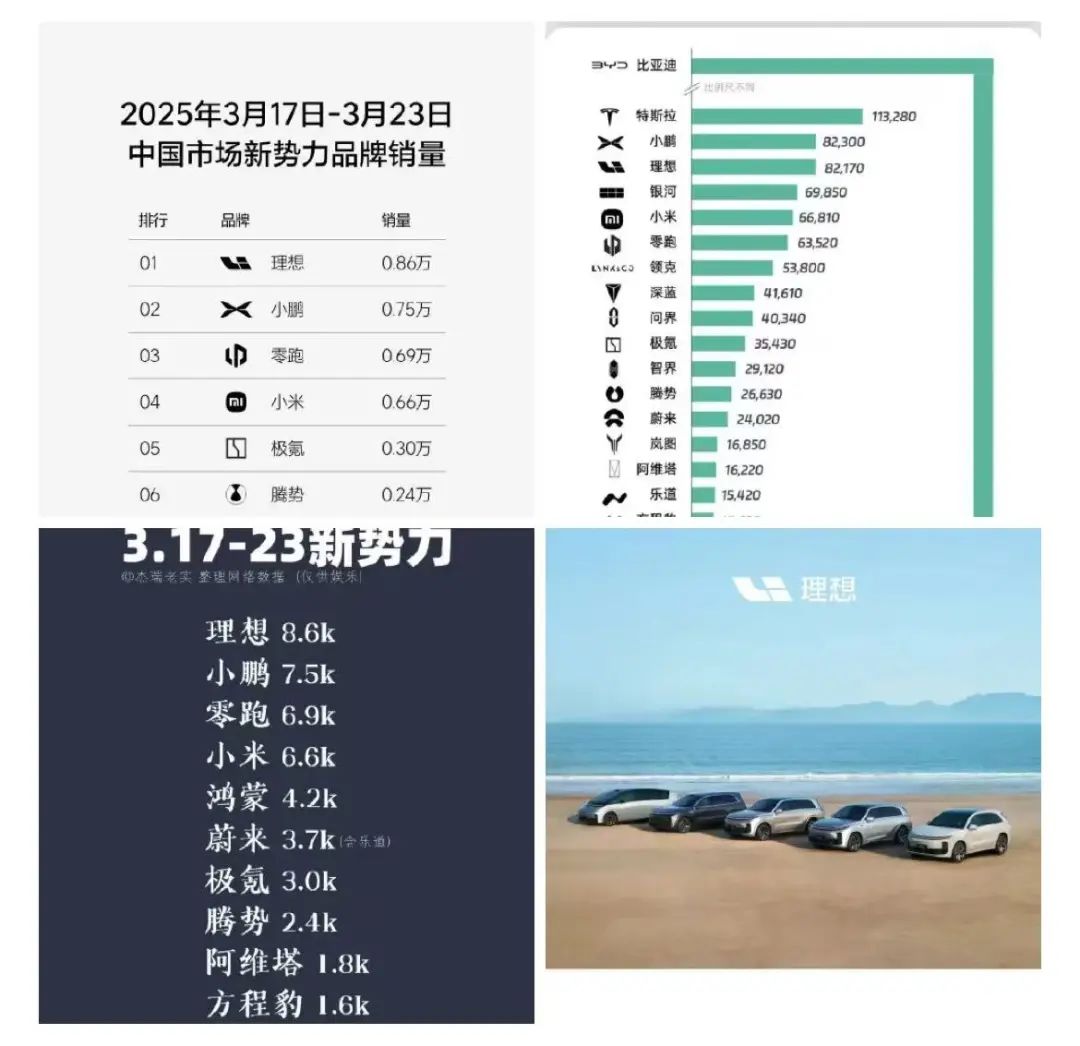
Later that day, YiChe released its weekly sales ranking, aligning with the "unofficial rankings." Prior to this, YiChe published weekly sales rankings weekly but lacked data for March 10th - March 16th.
According to YiChe's ranking data, no new energy automaker exceeded 10,000 units in weekly sales last week (March 17th - March 23rd). Li Auto reclaimed the top spot, surpassing XPeng. XPeng, Leapmotor, Xiaomi, and HarmonyOS Auto ranked second to fifth, respectively, with NIO at the bottom.
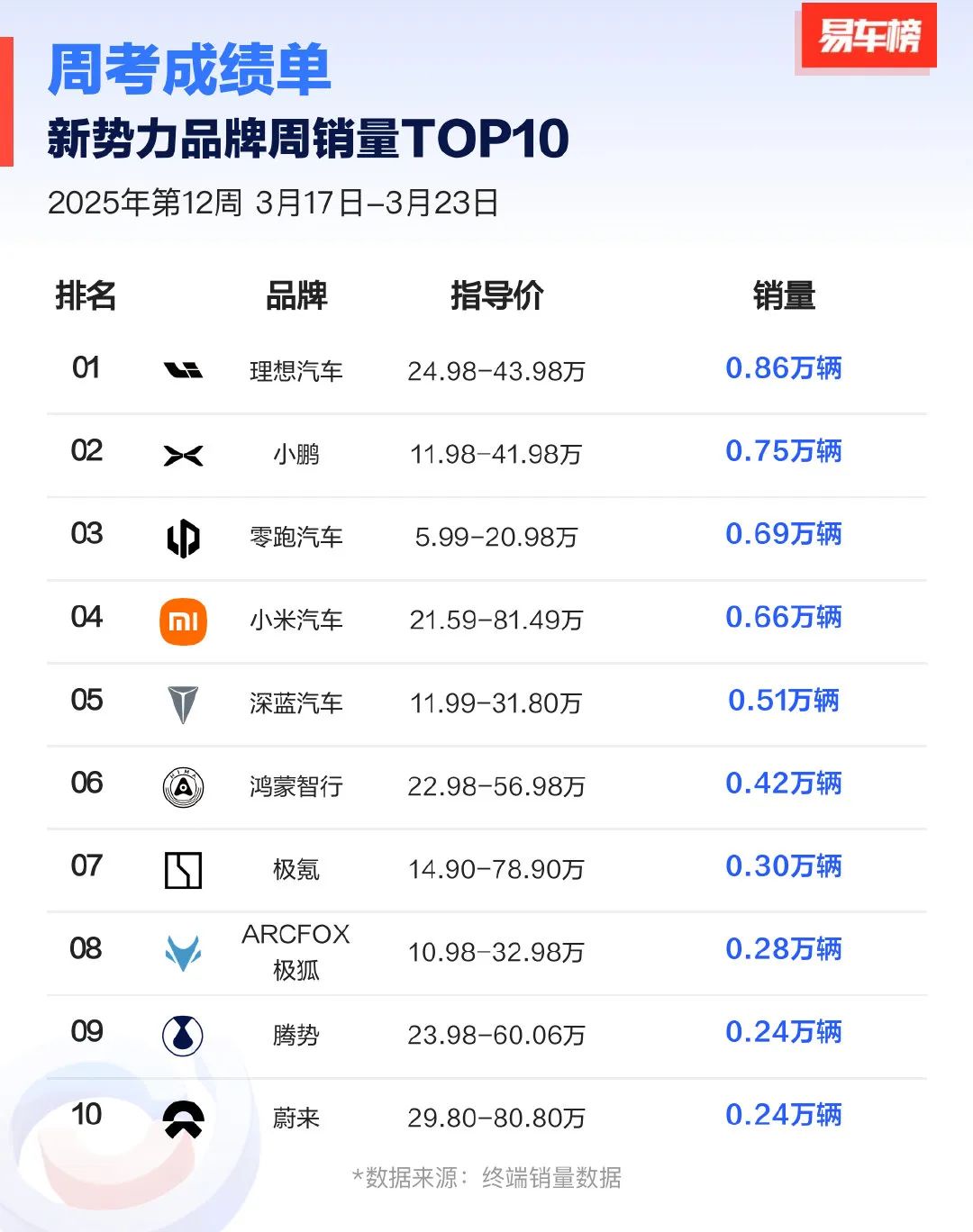
Specifically, Li Auto sold 8,600 units, leveraging a limited-time promotion offering up to RMB 16,000 off the final payment for the Li L series, combined with a 3-year 0% interest financing plan, saving up to RMB 38,000. This promotional strategy aims to boost orders before the L series and MEGA "Intelligent Driving Renewal Version" launch in May.
XPeng sold 7,500 units last week, trailing Li Auto by 1,100 units. XPeng's sales have been growing rapidly, with the MONA M03 and P7+ models, and the upcoming price reduction and launch of the 2025 G9 and G6 models expected to further propel sales. Third-party data indicates XPeng received 14,000 new orders last week, now testing its delivery capabilities.
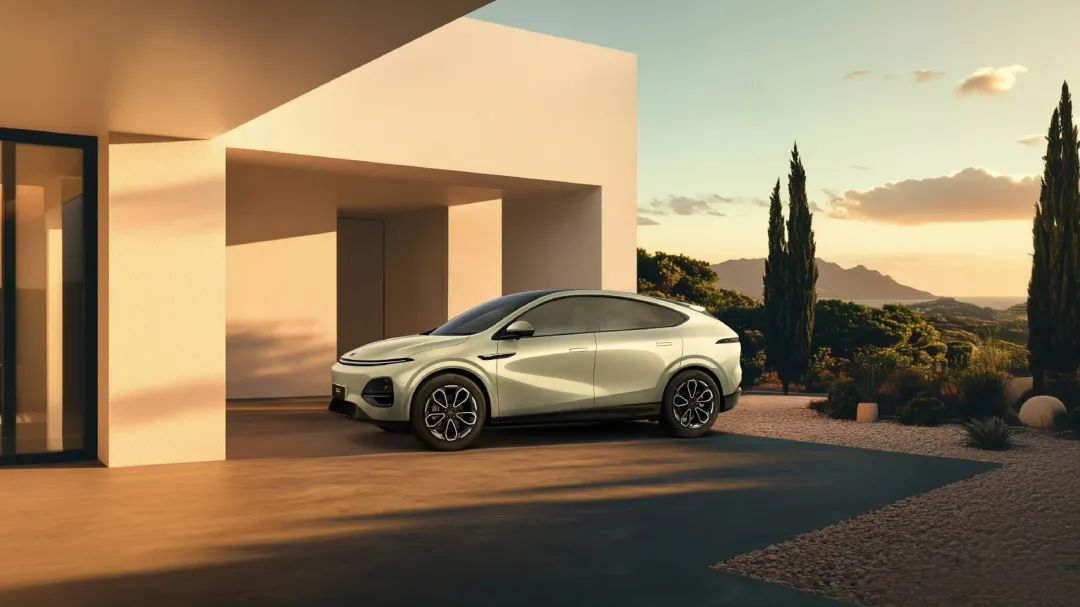
Leapmotor sold 6,900 units last week, with the upcoming B10 model, priced at only RMB 130,000, a key focus for sales growth. Xiaomi maintained weekly sales above 6,000 units for six consecutive weeks, hitting its production capacity limit. The launch of the Xiaomi SU7 Ultra drove sales growth of other versions, with Xiaomi receiving over 17,000 new orders last week.
HarmonyOS Auto, managing multiple brands, sold 4,200 units last week, impacted by product updates and replacements. It launched the 2025 M9 and AITO new M5 Ultra, with the 2025 M9 receiving over 21,000 orders within 72 hours of its launch. The AITO M8 pre-sale has also been excellent, with orders exceeding 70,000. Additionally, the new extended-range version of the Envision S9, priced RMB 80,000 lower than the pure electric version, is expected to launch in April, potentially opening a new chapter for the Envision brand and boosting HarmonyOS Auto's overall sales.
NIO sold 2,400 units last week, with Letao selling 1,200 units. Combined, NIO Inc.'s sales totaled 3,600 units, placing it at the bottom of the list. Currently, NIO is undergoing internal reforms to enhance efficiency and will boost sales through intensive new product advertising.
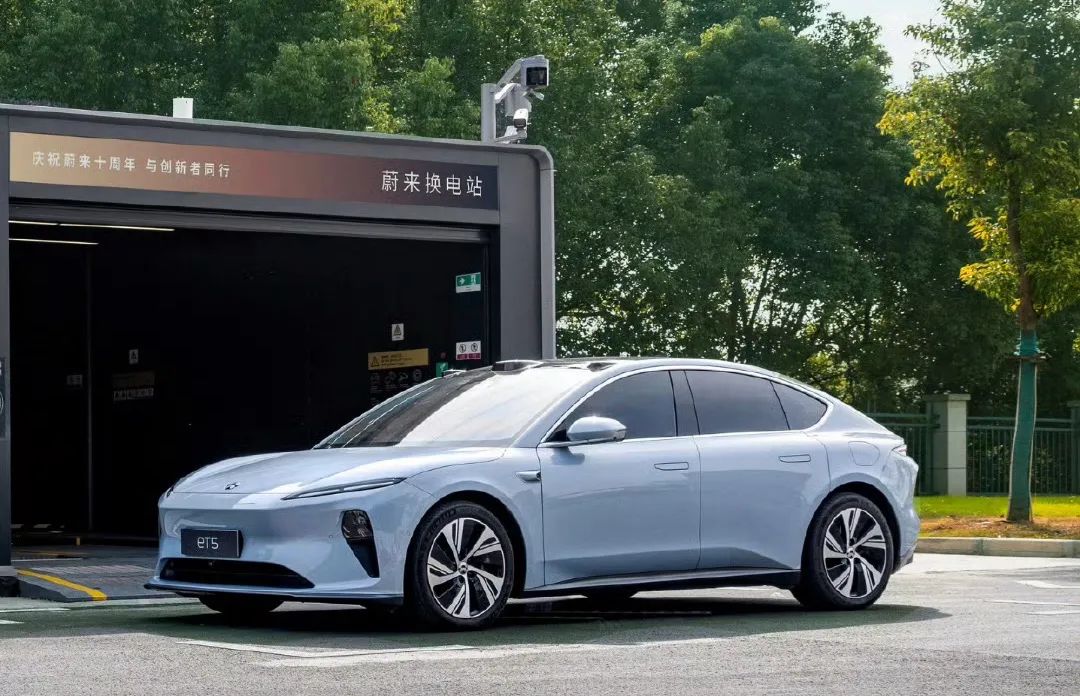
Among traditional automakers' new brands, Geely Galaxy sold 7,400 units from March 17th to March 23rd, while Aion sold 6,700 units, boosted by the launch of the UT pure electric compact car. Deepal sold 5,100 units weekly, Zeekr sold 3,000 units, ARCFOX resumed sales growth with 2,800 units weekly, and Denza sold 2,400 units.
Since Li Auto's inception of weekly sales rankings, although controversial, checking weekly sales data every Tuesday has become routine. The past two weeks indicate that even if Li Auto stops publishing, external weekly sales rankings will persist unless data sources are cut off.
Without an authoritative weekly sales ranking, "unofficial rankings" may contain errors, potentially affecting listed brands. For instance, when Li Auto suspended its weekly sales ranking in May 2023, a ranking with incorrect data surfaced for a week, prompting Li Auto CEO Li Xiang to debunk the mistake online. In this erroneous ranking, a certain enterprise's sales suddenly surpassed Li Auto, causing difficulties for the enterprise due to this "misleading" ranking.
Weekly sales data, beyond being a communication tool, also reflects automakers' sales performance. While unfavorable for automakers with poor sales, rankings with various qualifiers can be irritating. A model with average sales might appear as a top-ranked product in a niche market with many qualifiers, potentially influencing consumers' purchasing decisions.







